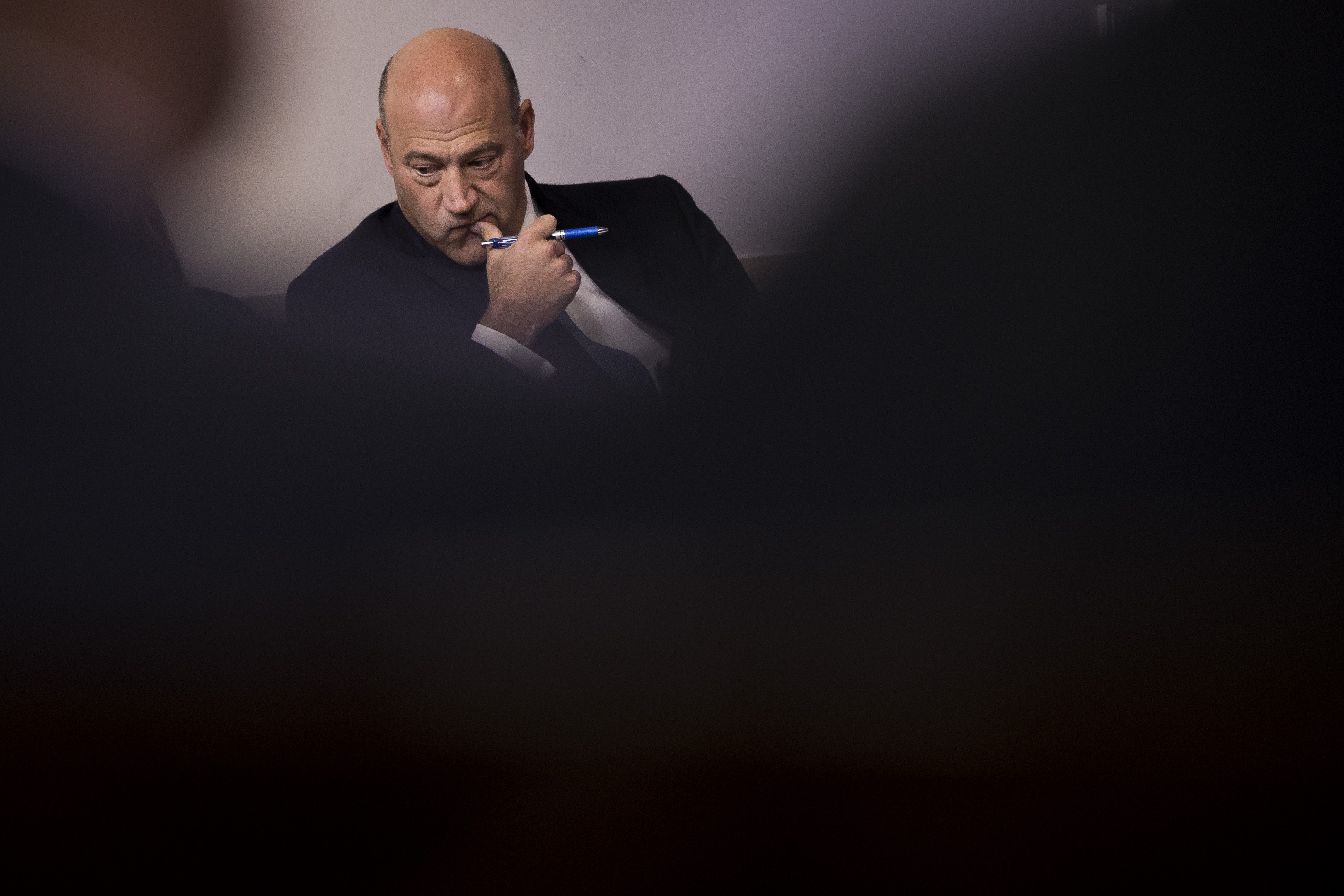Gary Cohn's breaking point
Why Trump's tariffs were the final straw for his top economic adviser


A free daily email with the biggest news stories of the day – and the best features from TheWeek.com
You are now subscribed
Your newsletter sign-up was successful
You can only push a man so far.
President Trump's top economic adviser, Gary Cohn, on Tuesday announced his intention to resign. Add one more name to the very long list of people who have already fled from the dysfunctional Trump administration. What was the last straw for Cohn? Steel and aluminum tariffs, apparently. While not exactly the most compelling reason for deciding you no longer want to work with Trump, Cohn's move is warranted: Unilaterally imposing significantly higher tariffs on imported steel and aluminum is truly another example of an impulsive Trump decision that is unlikely to pan out well.
Cohn's resignation was apparently preceded by a power struggle between him and more protectionist Trump advisers like top trade adviser Peter Navarro and Commerce Secretary Wilbur Ross. According to Kate Kelly and Maggie Haberman of The New York Times, Cohn "had warned last week that he might resign if Trump followed through with the tariffs, which Cohn had lobbied against internally." Trump called the non-bluff, which isn't surprising: Trump has had very few fixed views over the year, but protectionism has always been one of them.
The Week
Escape your echo chamber. Get the facts behind the news, plus analysis from multiple perspectives.

Sign up for The Week's Free Newsletters
From our morning news briefing to a weekly Good News Newsletter, get the best of The Week delivered directly to your inbox.
From our morning news briefing to a weekly Good News Newsletter, get the best of The Week delivered directly to your inbox.
Cohn was well aware of Trump's penchant for economic nationalism, so it's a little odd that this, of all things, was what pushed him to his breaking point. Personally, I would be more offended by, say, Trump firing the FBI director to obstruct the investigation into his campaign's possible collusion with Russian interference into the 2016 election, or his travel ban plainly targeted at Muslims, or his assertion that some of the neo-Nazi protesters in Charlottesville were "very fine people."
Of course, I never would have joined the administration of an unprecedentedly corrupt and dishonest president who began his ascension within the Republican Party by popularizing the racist conspiracy theory that Barack Obama was born in Africa, and started his nomination campaign by referring to Mexican immigrants as "rapists." It's always been clear that nobody who goes to work for Trump is going to come out looking better. But having swallowed that, some import tariffs are what's going to compel you to leave? It's instructive to know what Cohn's highest priorities are, at least.
While tariffs would be pretty far down on the list of Trump actions that would compel me to submit my resignation, that's not to say they're good policy. You don't have to be a doctrinaire free-trader to doubt the merit of this decision. As Annie Lowrey of The Atlantic observes, while many experts agree that the U.S. "faces unfair competition and artificially low prices that have damaged the domestic steel industry," they generally doubt that "a tariff is the right approach for addressing the problem."
The problems with the tariffs are clear: On the one hand, increasing the price of steel will hurt many other businesses that use the material to produce other goods. And since the tariffs would be unilaterally imposed by the executive under a (false) claim of "national security," they would be particularly likely to spur retaliatory measures that will hurt American businesses that rely on exports. And despite these downsides, the tariff by itself is hardly going to lead to a major rise in steel manufacturing across the rust belt.
A free daily email with the biggest news stories of the day – and the best features from TheWeek.com
Perhaps the bigger problem is that Trump thinks trade wars are a zero-sum game the United States can win, when in fact cycles of retaliation just leave both businesses and ordinary consumers worse off. China and the European Union are capable of inflicting more damage on the U.S. during a trade war than vice versa. It's yet another example of Trump's ignorance leading him to stumble into bad policy choices.
So while "what took you so long?" is the obvious and correct response to Cohn's resignation, he's probably not wrong on the merits here, either. Trump has been a terrible president because he's been an all-too-orthodox Republican, embracing extensive deregulation of business, upper-class tax cuts, and attacks on access to health care. Alas, his first major deviation from the preferences of most congressional Republicans isn't much of an improvement.
Scott Lemieux is a professor of political science at the College of Saint Rose in Albany, N.Y., with a focus on the Supreme Court and constitutional law. He is a frequent contributor to the American Prospect and blogs for Lawyers, Guns and Money.
